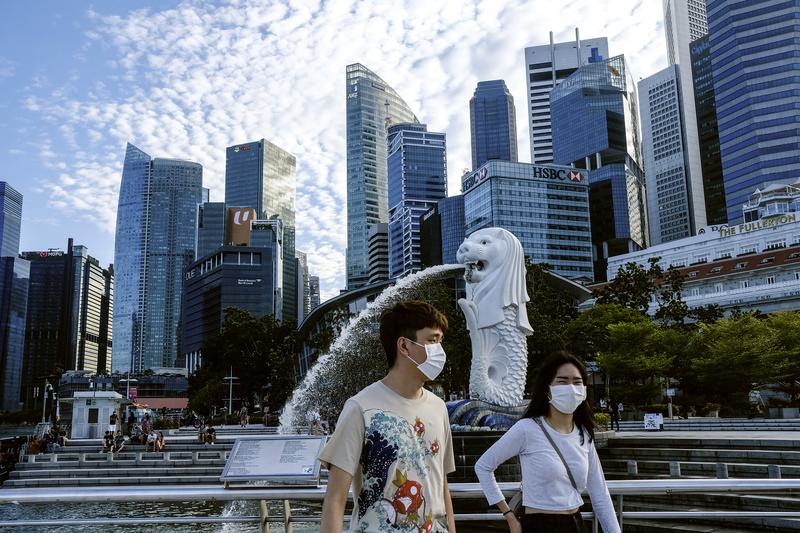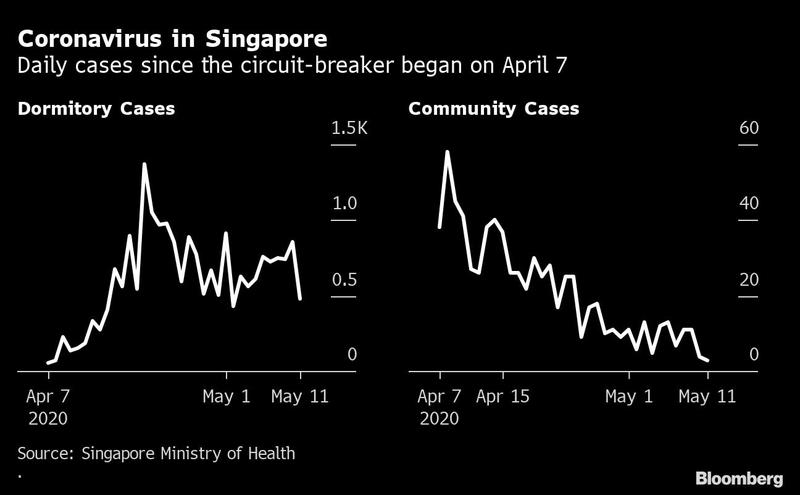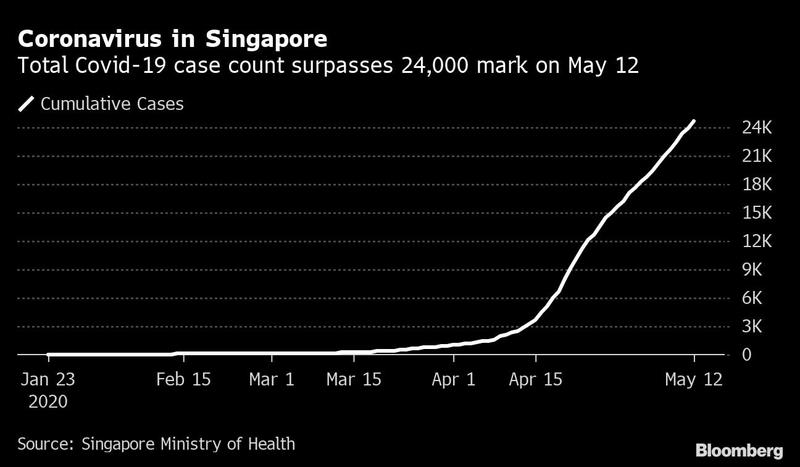 In this March 14, 2020 photo, a couple wearing face masks walk past the Merlion statue in Singapore. (EE MING TOH / AP)
In this March 14, 2020 photo, a couple wearing face masks walk past the Merlion statue in Singapore. (EE MING TOH / AP)
Singapore rejected “herd immunity” as a strategy in the fight against the coronavirus pandemic and signaled it instead will continue to contain transmission until a vaccine is ready.
Achieving herd immunity through natural infection is going to be very difficult and will result in large numbers of infections and complications.
Vernon Lee, director of communicable diseases, Singapore's health ministry
“It’s too big a price for us to pay,” Kenneth Mak, the health ministry’s director of medical services, said at a briefing Tuesday. “Even though we have taken many steps to prepare for surges, to expand our capability, it can easily be overwhelmed with a strategy of moving toward herd immunity.”
With new cases continuing to climb by hundreds each day, the city-state is opting for a more aggressive testing strategy that pivots from selectively screening those with symptoms of the coronavirus. The government already plans to bolster its testing capacity fivefold, from about 8,000 to as many as 40,000 tests a day by later this year.
ALSO READ: Acts of generosity lift spirits in Singapore
The government announced its expanded testing plan as it seeks to re-open an economy that has been hammered by the ongoing partial lockdown. Some workplaces and services, including hair salons, laundromats and pet food shops were allowed to resume operations Tuesday, while certain groups of students will be allowed to return to school next week.
More than 80 percent of Singapore’s workforce has been working from home after the government implemented “circuit-breaker” measures, including closing schools and most workplaces, in early April.
So-called herd immunity is established if enough people in a community develop immunity through prior illness or vaccination. Researchers would have to develop a vaccine that proves safe and effective against the coronavirus, and health authorities would have to get it to a sufficient number of people.

Achieving “herd immunity through natural infection is going to be very difficult and will result in large numbers of infections and complications,” said Vernon Lee, the ministry’s director of communicable diseases, at the briefing Tuesday. “We will have to wait for a viable vaccine to come out.”
Dorm outbreak
While the number of cases in the wider community continues to come down, an outbreak among low-wage migrant workers staying in cramped dormitories has led Singapore to record one of the largest virus tallies in Asia. On Tuesday the health ministry confirmed 884 new cases, the “vast majority” of them in the dorms, pushing the total to more than 24,000.
Infection rates at dorms are stabilizing, Brigadier-General Seet Uei Lim, commander of the inter-agency taskforce, said Tuesday. The government is creating “clean blocks” of recovered migrant workers who can go back to work when their sectors gradually re-open when the circuit breaker ends, he added.
By the end of May, 20,000 foreign workers will be ready for discharge from care facilities, Development Minister Lawrence Wong said. All of the more than 300,000 foreign workers in the city will be tested, he said.
With steady progress being made in the wider community and in the dorms, the government is in a “good position” to think about easing restrictions in a calibrated manner, Wong said.
“We are continuing to test many workers, including the ones who are asymptomatic,” part of the process to clear the dormitories systematically, Wong said. This will be done through mass swab tests and serology tests, with the latter being used in dormitories with high infection rates.

Officials said last week the government is looking at testing vulnerable groups such as residents and staff of nursing homes, front-line medical workers and the homeless. It also will prioritize migrant workers and those in essential services such as waste management, logistics and finance.
READ MORE: Singapore defends selective testing, says it yielded results
Though Singapore is scaling up testing efforts, its game plan is different from the mass testing adopted by countries like South Korea, where people can request to be tested.
Minister for Trade and Industry Chan Chun Sing said April 24 the city-state is looking at “much more testings for the entire population, and at the same time to take on” additional safe distancing measures.


